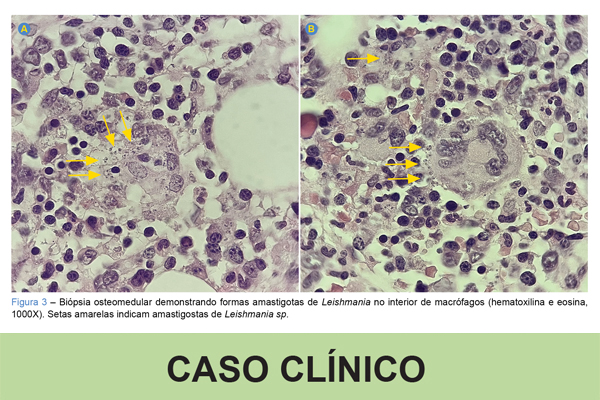SOCIAL MEDIA
Portuguese Medical Association's Scientific Journal

Leishmaniasis is a parasitic disease transmitted by the bite of female sandflies that occurs in tropical and subtropical climate regions. Visceral leishmaniasis is the most serious manifestation of the disease, leading to a 95% mortality rate after two years of infection if untreated. Visceral leishmaniasis is frequently associated with immunocompromised states, with the human immunodeficiency virus being the most prevalent. Most cases of visceral leishmaniasis are caused by the species Leishmania donovani and Leishmania infantum, the latter being the endemic species in the Mediterranean basin. In Portugal, the number of reported cases of visceral leishmaniasis has decreased in the last few years, with 15 cases reported between 2017 and 2021. The authors present a case of visceral leishmaniasis in an immunocompetent patient who manifested the classic pentad: fever, weight loss, hepatosplenomegaly, pancytopenia and hypergammaglobulinemia. The diagnosis was made by the observation of amastigotes of the Leishmania infantum species in the bone marrow aspirate examination, and the patient was successfully treated with liposomal amphotericin B.